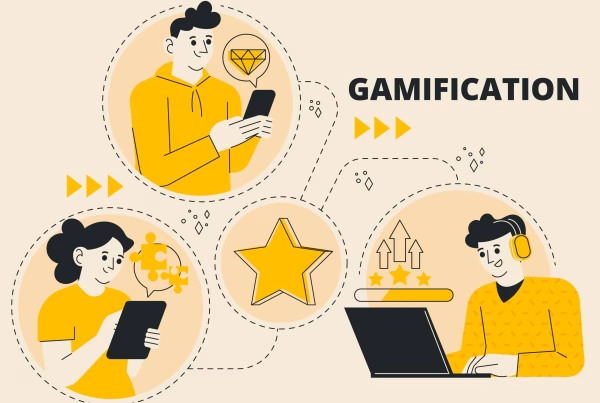The digital gambling landscape represents one of the fastest-growing sectors in entertainment technology. Revenue in the gambling market is projected to reach US$449.67bn in 2026, while the USA market is expected to reach nearly $40 billion by 2029. This explosive growth creates unprecedented opportunities for operators who understand how to navigate the complex marketing ecosystem effectively.
Online casino marketing encompasses the strategic deployment of digital campaigns designed to attract, convert, and retain players in an increasingly competitive marketplace. Unlike traditional brick-and-mortar establishments that rely on location-based advantages, digital operators must excel at creating compelling online experiences that cut through the noise of hundreds of competing platforms.
Modern iGaming marketing leverages sophisticated data analytics, artificial intelligence, and behavioral psychology to create personalized player journeys. With over 70% of online gaming revenue now coming from mobile devices, successful strategies must prioritize mobile-first approaches while maintaining seamless cross-platform experiences.
Core Components of Modern iGaming Marketing
The foundation of effective casino marketing rests on understanding player behavior patterns, demographic preferences, and engagement triggers. Today’s operators collect vast amounts of data on game preferences, session durations, deposit patterns, and communication responses to craft highly targeted campaigns.
Player data analysis forms the cornerstone of successful marketing initiatives. Advanced analytics platforms track everything from preferred game genres to optimal communication timing, enabling operators to deliver precisely timed offers that maximize conversion potential. This data-driven approach replaces the broad-spectrum advertising methods of earlier digital marketing eras.
Social media engagement has evolved beyond simple promotional posts to become sophisticated relationship-building platforms. Operators now create content ecosystems that educate, entertain, and engage potential players long before they register accounts. This approach builds trust and brand recognition in an industry where credibility significantly impacts player acquisition costs.
AI algorithms are increasingly being used to create personalized gaming experiences and marketing strategies, allowing operators to automate complex decision-making processes while maintaining the personal touch that drives player loyalty.
 Top 10 Online Casino Marketing Strategies for 2026 Success
Top 10 Online Casino Marketing Strategies for 2026 Success
Search Engine Optimization Excellence
Comprehensive SEO strategies extend far beyond basic keyword optimization. Modern casino SEO requires technical excellence in site architecture, lightning-fast loading speeds, and intuitive mobile navigation. Content strategies must balance informational value with entertainment appeal, creating resources that serve both search algorithms and human readers.
Voice search optimization represents a critical emerging frontier. The casino’s type segment is expected to grow at a significant CAGR over the forecast period from 2026 to 2030 due to the use of augmented reality (AR) and virtual reality (VR) technologies, requiring operators to optimize for conversational queries and long-tail keyword phrases that mirror natural speech patterns.
Local SEO becomes particularly important for operators targeting specific jurisdictions. Geo-targeted content addressing regional regulations, payment methods, and cultural preferences helps establish authority in key markets while improving search visibility for location-specific queries.
Influencer Partnership Strategies
Strategic influencer collaborations have moved beyond simple promotional posts to comprehensive content partnerships. Successful campaigns focus on authentic storytelling that resonates with specific audience segments rather than broad-spectrum endorsements.
Live streaming partnerships with gaming influencers create authentic product demonstrations that showcase actual gameplay experiences. These collaborations provide social proof while allowing potential players to observe real reactions and strategies, building confidence in the platform’s integrity.
Micro-influencer strategies often deliver superior engagement rates compared to celebrity partnerships. Niche content creators with dedicated followings in specific gaming verticals can drive highly qualified traffic at significantly lower costs than traditional advertising channels.
Advanced Personalization Techniques
AI can increase automation and deflection, helping optimize both agent-led and self-service processes, enabling sophisticated personalization that adapts in real-time based on player behavior patterns. Modern personalization extends beyond simple bonus offers to encompass game recommendations, communication preferences, and even user interface modifications.
Dynamic content optimization adjusts website elements based on visitor characteristics, displaying relevant games, promotions, and features that align with individual preferences. This approach significantly improves conversion rates while reducing bounce rates from irrelevant content exposure.
Predictive analytics identify players likely to churn before they disengage, enabling proactive retention campaigns that address specific concerns or interests. These systems can automatically trigger personalized offers, game suggestions, or support outreach based on behavioral indicators.
Comprehensive Loyalty Program Development
Modern loyalty programs transcend simple point accumulation systems to create comprehensive engagement ecosystems. Successful programs incorporate gamification elements, exclusive experiences, and personalized rewards that strengthen emotional connections between players and brands.
Tiered progression systems create long-term engagement goals while providing immediate gratification through smaller milestone rewards. Online casinos are doubling down on customer loyalty programs because they know they must keep players engaged and maximize lifetime value, making sophisticated loyalty architecture essential for competitive positioning.
Cryptocurrency integration in loyalty programs appeals to tech-savvy players while providing additional security and transparency in reward distribution. Blockchain-based loyalty tokens can create unique value propositions that differentiate operators in crowded markets.
Mobile-First Optimization Strategy
Operators are prioritizing mobile optimization, ensuring that games are accessible and responsive on various devices. Innovations such as Progressive Web Apps (PWAs) enable app-like experiences without requiring traditional app store downloads, reducing friction in the player acquisition process.
Push notification strategies must balance engagement with user experience, delivering valuable information without overwhelming players with excessive communication. Personalized notification timing based on individual activity patterns maximizes open rates while minimizing opt-out risks.
App store optimization requires continuous refinement of keywords, screenshots, and descriptions to maintain visibility in increasingly competitive mobile marketplaces. Regular A/B testing of creative elements ensures optimal conversion from app store visits to downloads and registrations.
Local Market Penetration
Geographic targeting strategies require deep understanding of regional preferences, regulatory requirements, and competitive landscapes. Successful local SEO campaigns incorporate region-specific content that addresses local gambling laws, preferred payment methods, and cultural gaming preferences.
Localized content creation goes beyond simple translation to encompass cultural adaptation that resonates with specific markets. This includes understanding regional sports preferences, holiday calendars, and communication styles that influence marketing effectiveness.
Backlink acquisition from regional publications and forums establishes local authority while improving search rankings for geo-targeted keywords. Building relationships with local gaming communities creates organic promotional opportunities that supplement paid advertising efforts.
Video Content Marketing
Dynamic video content creates emotional connections that static advertisements cannot achieve. Game preview videos, strategy guides, and behind-the-scenes content humanize brands while providing educational value that builds trust with potential players.
Social media video strategies must account for platform-specific preferences and technical requirements. Short-form content for TikTok requires different approaches than longer educational videos optimized for YouTube audiences.
Video testimonials and success stories provide social proof while allowing satisfied players to share authentic experiences. These testimonials can address common concerns about fairness, payout reliability, and customer service quality.
Sophisticated Retargeting Campaigns
Advanced retargeting extends beyond simple banner advertisements to encompass comprehensive re-engagement strategies across multiple touchpoints. Email sequences, social media campaigns, and display advertising work together to gradually build trust and encourage conversion.
Dynamic creative optimization automatically adjusts advertisement content based on individual user behavior and preferences. This approach ensures that retargeting messages remain relevant and compelling throughout extended consideration periods.
Cross-device tracking enables cohesive experiences as users transition between smartphones, tablets, and desktop computers. Maintaining consistent messaging and progression across devices reduces friction in the conversion process.
Strategic Affiliate Network Development
Comprehensive affiliate programs require careful partner selection, competitive commission structures, and ongoing relationship management. Successful operators focus on building long-term partnerships with affiliates who share similar values and target audiences.
Performance tracking and optimization tools enable data-driven decisions about affiliate partnerships while ensuring compliance with regulatory requirements. Regular analysis of affiliate performance helps identify top-performing partners for expanded collaboration opportunities.
 Content collaboration with affiliates creates authentic promotional materials that provide value to potential players. Educational content, strategy guides, and industry news positioned within affiliate networks build authority while driving qualified traffic.
Content collaboration with affiliates creates authentic promotional materials that provide value to potential players. Educational content, strategy guides, and industry news positioned within affiliate networks build authority while driving qualified traffic.
Live Dealer Experience Promotion
Live dealer games bridge the gap between online convenience and authentic casino atmosphere. Marketing these experiences requires emphasizing human interaction, real-time gameplay, and the social aspects that differentiate live games from automated alternatives.
High-quality streaming technology and professional dealers create premium experiences that justify higher marketing costs and attract players seeking authentic casino environments. Promotional strategies should highlight these quality differentiators.
Interactive features like chat functionality and multi-player tables create community experiences that encourage longer sessions and increased player retention. Marketing campaigns should emphasize these social elements to attract players seeking interactive entertainment.
Online iGaming Marketing Challenges and Solutions
The regulatory landscape presents the most significant challenge facing modern iGaming marketers. Compliance requirements vary dramatically across jurisdictions, requiring sophisticated systems to ensure all marketing materials meet local standards while maintaining consistent brand messaging.
Age verification and responsible gambling messaging must be seamlessly integrated into all marketing campaigns without compromising effectiveness. This balance requires careful attention to creative development and placement strategies that satisfy regulatory requirements while appealing to target audiences.
Competition intensity continues escalating as new operators enter established markets while existing brands expand their offerings. Standing out requires unique value propositions, superior user experiences, and innovative marketing approaches that capture attention in saturated advertising environments.
The Role of AI and Machine Learning in Casino Marketing
The global machine learning market will exceed $113 billion in 2026, indicating massive investment in AI technologies that will reshape how operators understand and engage with players. Machine learning algorithms can process vast datasets to identify patterns invisible to human analysts.
Predictive modeling helps operators anticipate player needs, optimal timing for promotional offers, and likelihood of various outcomes. These insights enable proactive marketing strategies that address player preferences before they’re explicitly expressed.
AI-powered tools enable operators to provide personalized support and resources, such as setting betting limits or offering access to counseling services, demonstrating how artificial intelligence can support responsible gambling initiatives while improving player experiences.
Chatbot technology has evolved to handle complex customer service inquiries while learning from each interaction to improve future responses. These systems provide 24/7 support while collecting valuable data about common player concerns and preferences.
Marketing Channel Effectiveness Analysis
| Channel | Effectiveness Rating | Cost Level | Best For | Key Metrics |
|---|---|---|---|---|
| Search Engine Marketing | High | Medium-High | New Player Acquisition | CPC, Conversion Rate, LTV |
| Social Media Advertising | Medium-High | Medium | Brand Awareness, Retargeting | Engagement Rate, CTR, ROAS |
| Affiliate Marketing | High | Low-Medium | Cost-Effective Scale | CPA, Revenue Share, Player Quality |
| Email Marketing | High | Low | Player Retention | Open Rate, Click Rate, Reactivation |
| Influencer Partnerships | Medium | Medium-High | Credibility Building | Engagement, Brand Mentions, Conversions |
| Content Marketing | Medium-High | Low-Medium | Long-term SEO | Organic Traffic, Time on Site, Backlinks |
| Video Advertising | Medium | Medium-High | Engagement, Education | View Rate, Completion Rate, CTR |
| Retargeting Campaigns | High | Medium | Conversion Optimization | ROAS, Frequency, Conversion Rate |
Pros and Cons of Modern iGaming Marketing
Advantages of Digital Casino Marketing
Advanced targeting capabilities enable precision audience reach that traditional advertising methods cannot achieve. Digital platforms provide detailed demographic, behavioral, and interest-based targeting options that ensure marketing budgets focus on the most promising prospects.
Real-time performance tracking allows immediate campaign optimization and budget reallocation based on actual results rather than projections. This agility provides significant competitive advantages in rapidly changing market conditions.
Global reach potential enables operators to expand into new markets without physical presence requirements. Digital marketing campaigns can test market viability and build awareness before committing to substantial local investments.
Cost efficiency compared to traditional advertising methods allows smaller operators to compete with established brands. Digital channels often provide better return on investment while offering more precise performance measurement.
Personalization capabilities create individualized experiences that traditional mass marketing approaches cannot replicate. This personal touch significantly improves conversion rates and customer lifetime value.
Disadvantages and Challenges
Regulatory complexity creates ongoing compliance challenges that require specialized knowledge and constant monitoring. Marketing campaigns must navigate diverse legal requirements across multiple jurisdictions.
High competition levels drive up advertising costs while making differentiation increasingly difficult. Established operators with larger budgets can outbid smaller competitors for premium advertising placements.
Ad blocking technology reduces reach while privacy regulations limit data collection capabilities. These trends require more sophisticated approaches to audience identification and engagement.
Platform dependency risks expose operators to algorithm changes and policy modifications that can dramatically impact campaign performance. Diversification across multiple channels becomes essential for stability.
Technical complexity requires specialized expertise and ongoing education to maintain effectiveness. The rapid pace of digital marketing evolution demands continuous learning and adaptation.
Future Trends in Online Casino Marketing
Virtual and augmented reality technologies will create immersive marketing experiences that allow potential players to sample games and environments before registering. These technologies will particularly benefit live dealer and skill-based gaming promotion.
Blockchain integration will provide transparency in advertising metrics while enabling innovative loyalty program designs. Smart contracts could automate affiliate payments and bonus distributions while ensuring accuracy and reducing administrative overhead.
Voice search optimization will become critical as smart speaker adoption continues growing. Natural language processing will require new approaches to keyword research and content optimization.
Environmental sustainability messaging will appeal to younger demographics who prioritize corporate responsibility. Green gaming initiatives and carbon-neutral operations will become differentiating factors in marketing campaigns.
Privacy-first marketing strategies will emerge as third-party cookie tracking becomes obsolete. First-party data collection and contextual advertising will replace traditional behavioral targeting methods.
Frequently Asked Questions – Online Casino Marketing
How can smaller operators compete with established casino brands in 2026?
Smaller operators should focus on niche markets, specialized game offerings, and exceptional customer service rather than competing directly on advertising spend. Crypto-focused platforms, specific game genres, or unique cultural themes can create distinct market positions that attract dedicated player bases.
Which emerging technologies will have the biggest impact on casino marketing?
Artificial intelligence and machine learning will dominate marketing evolution, enabling unprecedented personalization and predictive capabilities. Virtual reality will create new promotional opportunities, while blockchain technology will improve transparency and trust in affiliate relationships.
How do changing privacy regulations affect iGaming marketing strategies?
Privacy regulations require shift toward first-party data collection and contextual advertising rather than behavioral tracking. Operators must build direct relationships with players and create value exchanges that encourage voluntary data sharing while respecting privacy preferences.
What role does content marketing play in modern casino promotion?
Content marketing builds long-term brand authority while supporting SEO objectives and establishing trust with potential players. Educational content about game strategies, industry news, and responsible gambling demonstrates expertise while attracting organic traffic.
How important is mobile optimization for casino marketing success?
Mobile optimization is critical, with over 70% of online gaming revenue coming from mobile devices. Operators must prioritize mobile-first design, fast loading speeds, and intuitive navigation to capture and retain the growing mobile gaming audience.
What are the key metrics for measuring casino marketing effectiveness?
Essential metrics include customer acquisition cost (CAC), lifetime value (LTV), return on ad spend (ROAS), conversion rates, and player retention rates. These metrics should be tracked across all marketing channels to optimize budget allocation and campaign performance.
How can operators ensure responsible gambling while maintaining effective marketing?
Responsible gambling integration requires transparent communication about risks, easy access to control tools, and proactive identification of problem gambling behaviors. Marketing messages should emphasize entertainment value rather than financial opportunity while promoting healthy gaming habits.
What trends will shape iGaming marketing beyond 2026?
Long-term trends include increased regulation requiring more sophisticated compliance systems, growing importance of social responsibility, integration of emerging technologies like quantum computing for enhanced security, and evolution toward more immersive, community-focused gaming experiences.
CasinosBroker provides comprehensive marketing solutions tailored to the evolving iGaming landscape, helping operators navigate regulatory challenges while maximizing player acquisition and retention through data-driven strategies and innovative promotional approaches.





